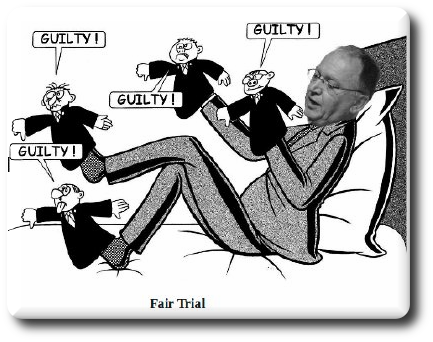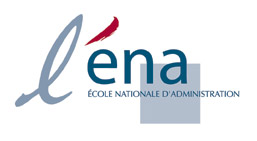Earlier today we finally got a full translation. The reader said, “here is the translation of part of the book I referred to yesterday: “Livre noir de l’ENA”. Translation might not be perfect.”
Introduction
In 2007, for France to survive, we need to free us from the omnipotence of the ENA.
Since 1974, France is declining; since 1974, France is behind other nations and its international influence has continued to decrease.
“1974: this is the beginning of the rise in unemployment but also to the arrival at the pinnacle of power and to maturity of a postwar generation of ENA graduates (ENA, “Nation School of Administration”).”There are plenty of analyses and explanations, or rather excuses, abound, but the decline continues, inexorably.
Why? Because nobody dared to draw the obvious conclusion, and much less dared formulate what some will regard as sacrilege: if France is declining, it is because of its ruling class, one that we all used to put on a pedestal because it represents the power, because it takes most of the control levers, because it receives honours and decorations.
1974: this is the beginning of the rise in unemployment but also to the arrival at the pinnacle of power and to maturity of a postwar generation of ENA graduates (ENA, “Nation School of Administration”).
It is a class in which most members, if they were brilliant during exams, are incompetent once in the real world.
“Even worse, this is not even a class but a caste, i.e. a small group of men and women, who have seized power not to serve the Nation, which should be the first reason, but to serve themselves and increase their privileges.”When these little geniuses of this kind are confronted with the market, then they act without protection of the State that fed them, and then it ends in most of the cases in a disaster (see biographies for the “Titanic Promotion”).
Very few are those who survived inadequate training and mandarinism, system that destroyed medieval China and consisting in giving the leadership and the power for all their life to 25 years old young people, under the sole pretext that they have managed difficult exams.
Even worse, this is not even a class but a caste, i.e. a small group of men and women, who have seized power not to serve the Nation, which should be the first reason, but to serve themselves and increase their privileges.
While the vast majority of the énarques serve the State with skill and dedication, about hundred careerists who holds the key positions at the head of the State or companies are characterized by their incompetence, irresponsibility and serve their personal interests.
Within this caste, there are hardly statesmen, men for whom the interests of the country come before self-interest.
The most dramatic is that this caste, which paralyses France, is composed of a number very limited number of individuals. Former students of the ENA, because that’s essentially all it’s about, are just over 5000. But these are only a few hundred careerist énarques who have control over almost all key positions in the administration and high Executive, through which they actually control the legislature. Thus, almost 80% of the positions as Director of the Ministry of Finance, 75% of the positions as heads of departments in Ministries, as well as the Presidency of the Republic are in the hands of ENA graduates.
“Thus, almost 80% of the positions as Director of the Ministry of Finance, 75% of the positions as heads of departments in Ministries, as well as the Presidency of the Republic are in the hands of ENA graduates.”During the last 30 years, no minister can have any influence if it does not furnish his cabinet with énarques and especially finance inspectors.
The tragedy is that these inspectors of finance have not learned at the ENA how to create wealth and reduce unemployment. Creating wealth requires to take calculated risks into consideration, but it’s the opposite that it is taught at the ENA. A successful career in Public Service does not require a capacity of creation and inventiveness because, to produce visible effects, it would require to remain in the same position for a long time; on the contrary, it is imperative to avoid “waves” and one quickly learns that only those who do nothing will not deceive….
“In this depravity of power, ENA graduates find themselves having links with unions whose action range is so small that it only resides in defending the privileges accumulated by the civil servants in the public services.”The ENA has populated the top of the State with intellectually brilliant individuals selected by a succession of competitive exams, which proved difficult, but who are unable to take courageous decisions, unable to reform and unable to create.
What they know is to control, regulate, distribute.
In the last 30 years they have increased not only the taxes and levies, but also regulations that fragment our society and multiply obstacles to any development.
The “énarchia” monopolizes and sterilizes information, stifles Parliament, whose initiatives are blocked by the implementing decrees or delays at their release; she rules lonely in her technocratic ivory tower, surrounded by a bloated administration.
In this depravity of power, ENA graduates find themselves having links with unions whose action range is so small that it only resides in defending the privileges accumulated by the civil servants in the public services.
“There will be no French renaissance as long as this caste retain the monopoly of power.”This allows, in the name of a “social partnership” and of the protection of the French “social model”, to stop all evolution, avoiding in particular to apply solutions in France that have proven abroad and whose main philosophy is to build on individual initiatives and not on the choices made by some brilliant individuals. Acting differently would reduce the role of the “welfare” state, where this caste finds a justification for its existence.
The French “social model” remains one of mass unemployment.
There will be no French renaissance as long as this caste retain the monopoly of power.
FIRST PART
THE INCOMPETENCE OF THE ENARQUES: MAIN CAUSE OF FRENCH FAILURE.
Preamble: The French failure, failure of the énarchia
“We note an undeniable correlation between good corporate management and non-énarque management…”The list of failures of large companies managed by énarques is overwhelming.
In the banking system in particular, where from 1989 to 1999, the added value of the financial sector institutions fell by 27% in constant French francs while increasing in most other countries (+ 39% in Britain, + 50% in the US) and in the rest of French market services (+ 17%).
This is the case of the disaster of the Crédit Lyonnais, Crédit Foncier and of the French Agency for Development; the hole dug by the Bank of France, 900 billion Franch francs of losses, changes in the years 1997-1998 but remained unattended in the media. The French bank system collapses compared to its foreign competitors and many jewels are bought by more efficient European competitors.
“There is no reason that “these young men” as Pierre Mendes-France used to called them, are better in the management of public enterprises or administration but the lack of competition mask their inability.”In 2003, according to the ranking of the top 100 European banks conducted by the agency Ficht Rating, the first French bank in terms of profitability is only 22th.
In the sector of large non-financial companies, the disaster is exemplified by Michel Bon heading France Telecom, Jean-Marie Messier at Vivendi Universal, Pierre Bilger and Philippe Jaffré for Alstom, all of them énarques and finance inspectors.
Faced with these failures, the number of successes due to énarques is minimal: When citing Schweitzer for Renault, Spinetta at Air France, we have cited almost all international successes in businesses led by ENA graduates.
“The ENA graduates have indeed invaded all sectors not affected by competition…”We note an undeniable correlation between good corporate management and non-énarque management: in her book “The Untouchables” Ghislaine Ottenheimer quoting Antoine Bernheim and his lists of the greatest achievements and their qualifications: Bernard Arnault (Polytechnic), Vincent Bolloré (Law), Serge Kampf (Sciences-eco, flunked at ENA), Martin Bouygues (nothing). “There are not many inspectors of finance”.
There is no reason that “these young men” as Pierre Mendes-France used to called them, are better in the management of public enterprises or administration but the lack of competition mask their inability.
Therefore, it is not surprising that every time or almost every time one considers a public institution or a public company not subject to the competition, it is ill-managed.
The ENA graduates have indeed invaded all sectors not affected by competition, where losses are not visible because the government financially fills the holes or gives them the ability to levy forced contributions, actually quasi-taxes:
- SNCF (Louis Gallois Guillaume Pepy) [Franch railways]
- RATP (Anne-Marie Idrac, Jean-Marc Janaillac) [Parisian metro]
- EDF (François Roussely) [electricity utilities]
- Caisse des Dépôts et Consignations (Francis Mayer) [ French financial organization created in 1816, and part of the government institutions under the control of the Parliament to safeguard public funds]
- Part of the public television and radio
- Even in the healthcare sector where they have multiplied: Assistance Publique de Paris (puböic hospital) and the Regional Hospitalisation Agencies where they occupy more than half of leadership positions.
Why would they be better in these protected positions as they are in more exposed positions? And, generally, why would they best in governmental leadership positions?
Above all, as we shall see in the second part, there is no real control of the efficiency of public expenditure and the Ministry of Finance, where they occupy key position, crushes everything in its power.
The consequences are disasters as unemployment because they do not understand how to create jobs, waste of public money because they refuse that other than énarques go and stick their noses in their accounts, as the non-development of sponsorship because they fear that private sponsorship be a kind of competition and put in evidence the public inefficiency, especially in Culture, that has become an Enarques’ stronghold.
That part which we found interesting speaks of “sectors not affected by competition” because that’s just like EPO, which effectively enjoys a monopoly. Battistelli just needs to cook up some bogus numbers, e.g. by accelerating patent acceptance (hardly rejections). Earlier this month Battistelli used some truly misleading self-serving talking points and numbers, right after massive protests in Munich. This new comment makes a relevant point about Battistelli’s [BB] dubious yardsticks. To quote:
Tomorrow we are planning to release the final piece of this series. It’s by far the most important piece. █





 Summary: A closer look at École nationale d’administration (ÉNA) and its loathsome role in French politics, in addition to some remarks about ÉNA alumnus Battistelli with his poor performance in a zero-competition sector (he has got a monopoly) and made up figures, which give only an illusion of success
Summary: A closer look at École nationale d’administration (ÉNA) and its loathsome role in French politics, in addition to some remarks about ÉNA alumnus Battistelli with his poor performance in a zero-competition sector (he has got a monopoly) and made up figures, which give only an illusion of success

















 Content is available under CC-BY-SA
Content is available under CC-BY-SA